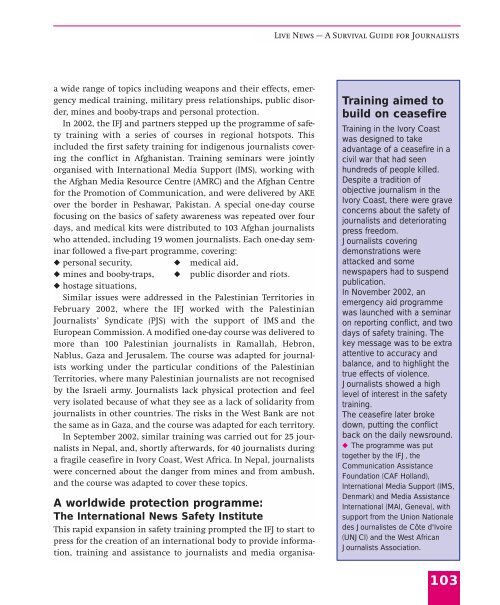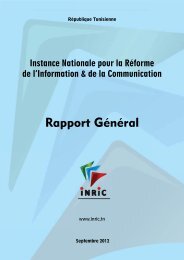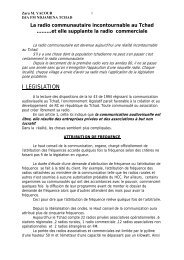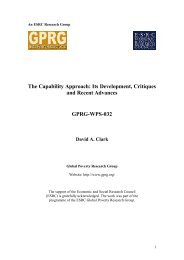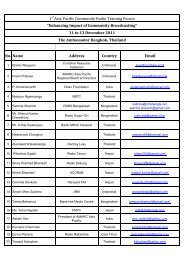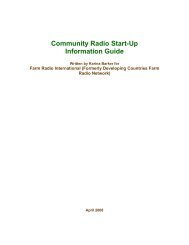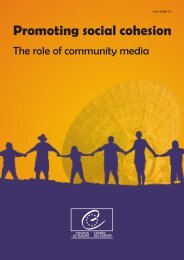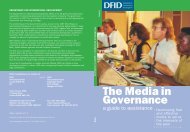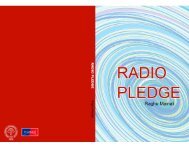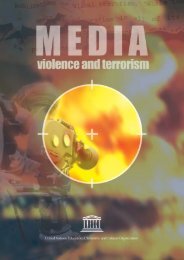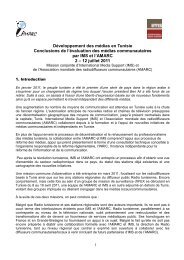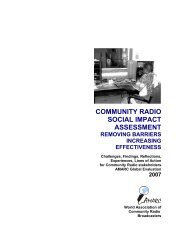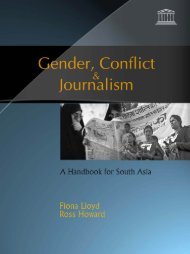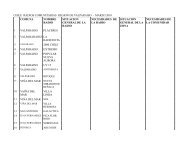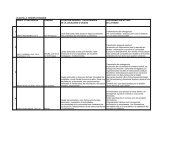Live News - A Survival Guide - International Federation of Journalists
Live News - A Survival Guide - International Federation of Journalists
Live News - A Survival Guide - International Federation of Journalists
- No tags were found...
Create successful ePaper yourself
Turn your PDF publications into a flip-book with our unique Google optimized e-Paper software.
<strong>Live</strong> <strong>News</strong> — A <strong>Survival</strong> <strong>Guide</strong> for <strong>Journalists</strong>a wide range <strong>of</strong> topics including weapons and their effects, emergencymedical training, military press relationships, public disorder,mines and booby-traps and personal protection.In 2002, the IFJ and partners stepped up the programme <strong>of</strong> safetytraining with a series <strong>of</strong> courses in regional hotspots. Thisincluded the first safety training for indigenous journalists coveringthe conflict in Afghanistan. Training seminars were jointlyorganised with <strong>International</strong> Media Support (IMS), working withthe Afghan Media Resource Centre (AMRC) and the Afghan Centrefor the Promotion <strong>of</strong> Communication, and were delivered by AKEover the border in Peshawar, Pakistan. A special one-day coursefocusing on the basics <strong>of</strong> safety awareness was repeated over fourdays, and medical kits were distributed to 103 Afghan journalistswho attended, including 19 women journalists. Each one-day seminarfollowed a five-part programme, covering:◆ personal security, ◆ medical aid,◆ mines and booby-traps, ◆ public disorder and riots.◆ hostage situations,Similar issues were addressed in the Palestinian Territories inFebruary 2002, where the IFJ worked with the Palestinian<strong>Journalists</strong>’ Syndicate (PJS) with the support <strong>of</strong> IMS and theEuropean Commission. A modified one-day course was delivered tomore than 100 Palestinian journalists in Ramallah, Hebron,Nablus, Gaza and Jerusalem. The course was adapted for journalistsworking under the particular conditions <strong>of</strong> the PalestinianTerritories, where many Palestinian journalists are not recognisedby the Israeli army. <strong>Journalists</strong> lack physical protection and feelvery isolated because <strong>of</strong> what they see as a lack <strong>of</strong> solidarity fromjournalists in other countries. The risks in the West Bank are notthe same as in Gaza, and the course was adapted for each territory.In September 2002, similar training was carried out for 25 journalistsin Nepal, and, shortly afterwards, for 40 journalists duringa fragile ceasefire in Ivory Coast, West Africa. In Nepal, journalistswere concerned about the danger from mines and from ambush,and the course was adapted to cover these topics.A worldwide protection programme:The <strong>International</strong> <strong>News</strong> Safety InstituteThis rapid expansion in safety training prompted the IFJ to start topress for the creation <strong>of</strong> an international body to provide information,training and assistance to journalists and media organisa-Training aimed tobuild on ceasefireTraining in the Ivory Coastwas designed to takeadvantage <strong>of</strong> a ceasefire in acivil war that had seenhundreds <strong>of</strong> people killed.Despite a tradition <strong>of</strong>objective journalism in theIvory Coast, there were graveconcerns about the safety <strong>of</strong>journalists and deterioratingpress freedom.<strong>Journalists</strong> coveringdemonstrations wereattacked and somenewspapers had to suspendpublication.In November 2002, anemergency aid programmewas launched with a seminaron reporting conflict, and twodays <strong>of</strong> safety training. Thekey message was to be extraattentive to accuracy andbalance, and to highlight thetrue effects <strong>of</strong> violence.<strong>Journalists</strong> showed a highlevel <strong>of</strong> interest in the safetytraining.The ceasefire later brokedown, putting the conflictback on the daily newsround.◆ The programme was puttogether by the IFJ, theCommunication AssistanceFoundation (CAF Holland),<strong>International</strong> Media Support (IMS,Denmark) and Media Assistance<strong>International</strong> (MAI, Geneva), withsupport from the Union Nationaledes Journalistes de Côte d'Ivoire(UNJCI) and the West African<strong>Journalists</strong> Association.103


